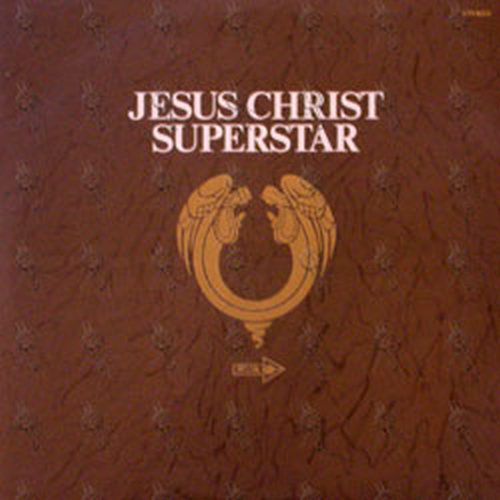Decca 7206
Producers: Tim Rice and Andrew Lloyd Webber
Track listing: Overture / Heaven on Their Minds / What’s the Buzz / Strange Thing Mystifying / Everything’s Alright / This Jesus Must Die / Hosanna / Simon Zealotes / Poor Jerusalem / Pilate’s Dream / The Temple / Everything’s Alright / I Don’t ‘now How to Love Him / Damned for All Time / Blood Money / The Last Super / Gethsemaine (I Only Want to Say) / The Arrest / Peter’s Denial / Pilate and Christ / King Herod’s Song /Judas’ Death / Trial Before Pilate (Including the 39 Lashes) / Superstar / Crucifixion / John Nineteen: Forty-One

February 20, 1971
3 weeks (nonconsecutive)
In 1966, on the eve of the Beatles’ first American tour, John Lennon said that the Beatles were “more popular than Jesus.” That may have been true at the time, or of the band as a whole, but apparently it was not the case with one Beatle as a solo artist. Five years after Lennon’s controversial comment, All Things Must Pass, George Harrison’s first Number One solo album, was knocked from the top spot on the chart by Jesus — Jesus Christ Superstar, that is.
In the same interview, Lennon also said, “I don’t know which will go first — rock and roll or Christianity.” Ironically, it was a combination the two that made Jesus Christ Superstar a success.
The album, billed as “a rock opera,” was the brainchild of Tim Rice and Andrew Lloyd Webber, two struggling young British composers who met in 1965. “I was writing pop songs and I was a law student,” says Rice. “Andrew was a very enthusiastic theater supporter and wanted to write for the musical theater.”
The duo’s first effort of note, Joseph and the Amazing Technicolor Dreamcoat, also combined elements of the Bible, rock music, and theater, but it wasn’t especially well-received.
“Joseph was not any commercial success at all at that point,” says Rice. “It was only successful in England as kind of project in schools. It really hadn’t made any money or given us a track record or any status. We were starting from scratch with Jesus Christ Superstar.”
Yet Joseph and the Amazing Technicolor Dreamcoat did garner the attention of an agent named David Land, who signed the duo. “He gave us 30 pounds a week to give up our day jobs and concentrate on writing a musical,” says Rice. “I had this idea that the story of Jesus would be a good idea for a musical. It would be different.”
Yet once the project was completed, Land had a hard time finding interested parties in staging the work as a musical. “The only interest he could get on Superstar was as a record,” says Rice. “So as second-best, we agreed we would do it as an album for MCA.”
“Since it was going to be a record, we turned it into sort of an operatic format, but we wanted it to be contemporary with rock music,” Rice adds.
To record the album, the duo enlisted a combination of rock stars and unknowns. Deep Purple lead singer Ian Gillan played the lead role of Jesus Christ. Some of the then-unknowns included Murray Head, who played Judas Iscariot, and Yvonne Elliman, who was featured as Mary Magdalene. Head would have a hit more than a decade later with the Rice-penned “One Night in Bangkok,” while Elliman rose to fame on the Saturday Night Fever soundtrack.
“Most people wanted session fees rather than royalties , which they would regret later,” says Rice. “We wanted to give them royalties because we were working on a tight budget, but they wanted session fees because they reckoned the record would not be a hit.”
Some were outraged by the very concept of a two-record rock album telling the story of the last seven days of Jesus’ life. “It was quite controversial, which undoubtedly helped the album,” says Rice. “A lot of people thought it was blasphemous, but they were usually people who hadn’t heard it.”
THE TOP FIVE
Week of February 20, 1971
1. Jesus Christ Superstar, Various artists
2. Chicago III, Chicago
3. All Things Must Pass, George Harrison
4. Abraxas, Santana
5. Tumbleweed Connection, Elton John
